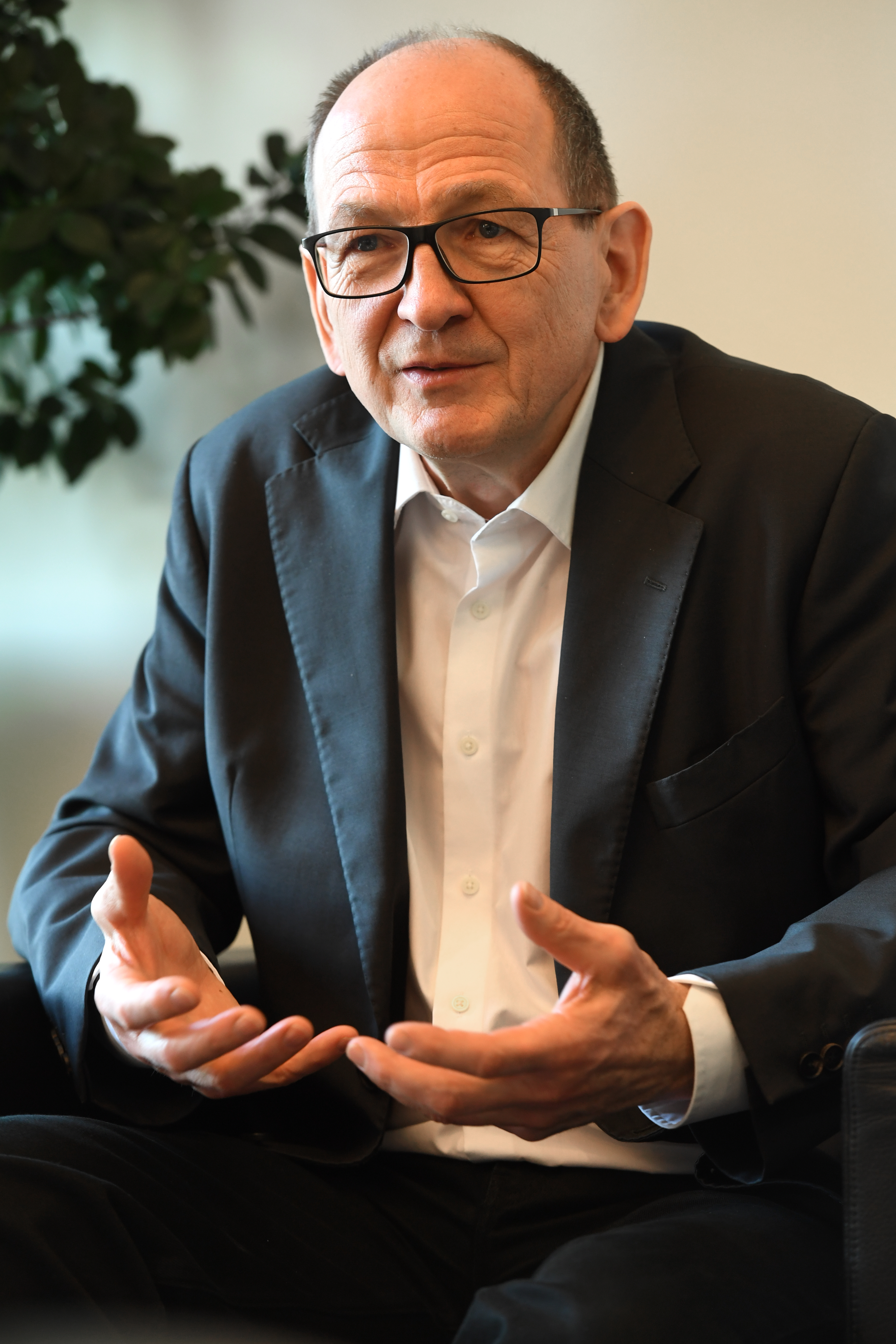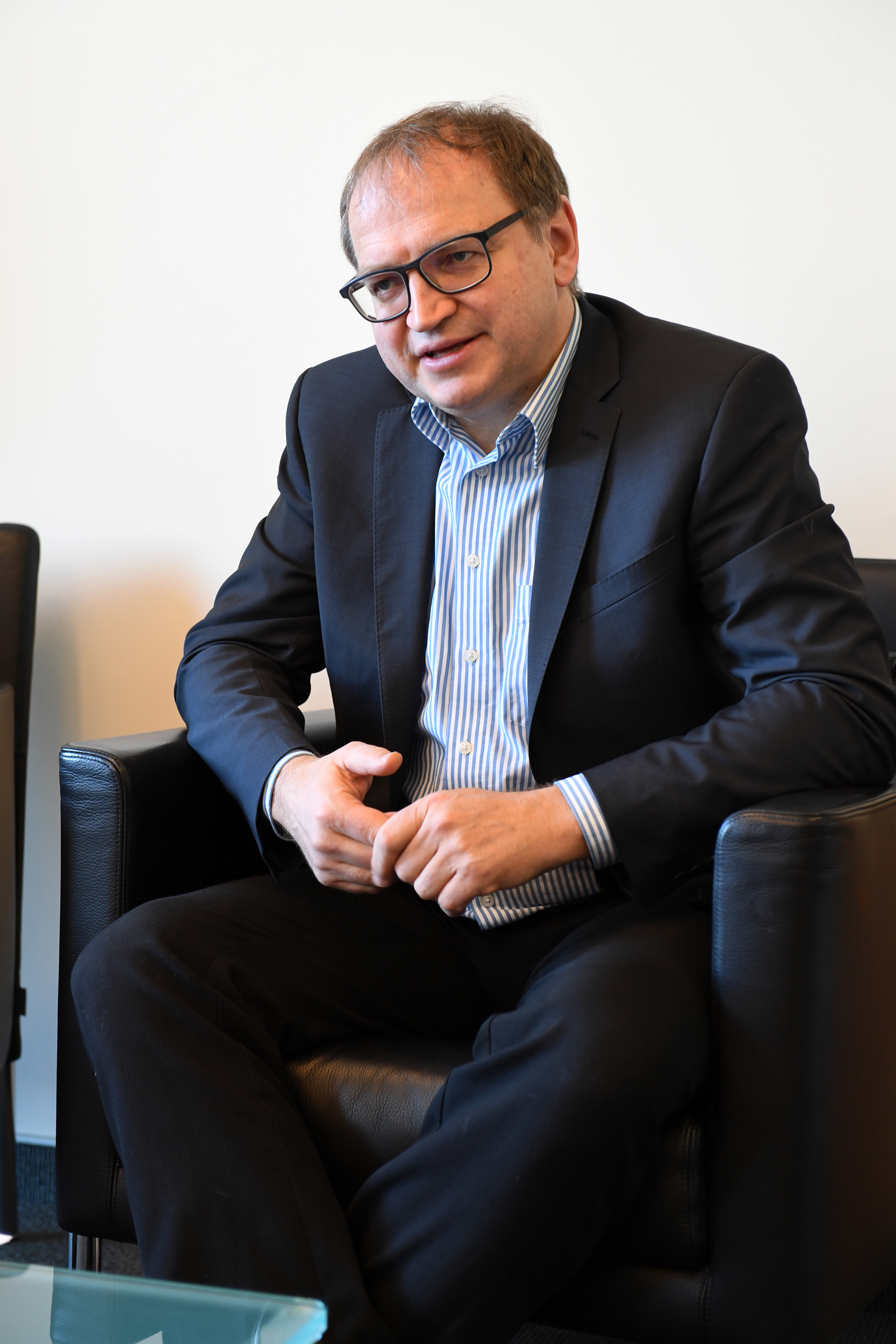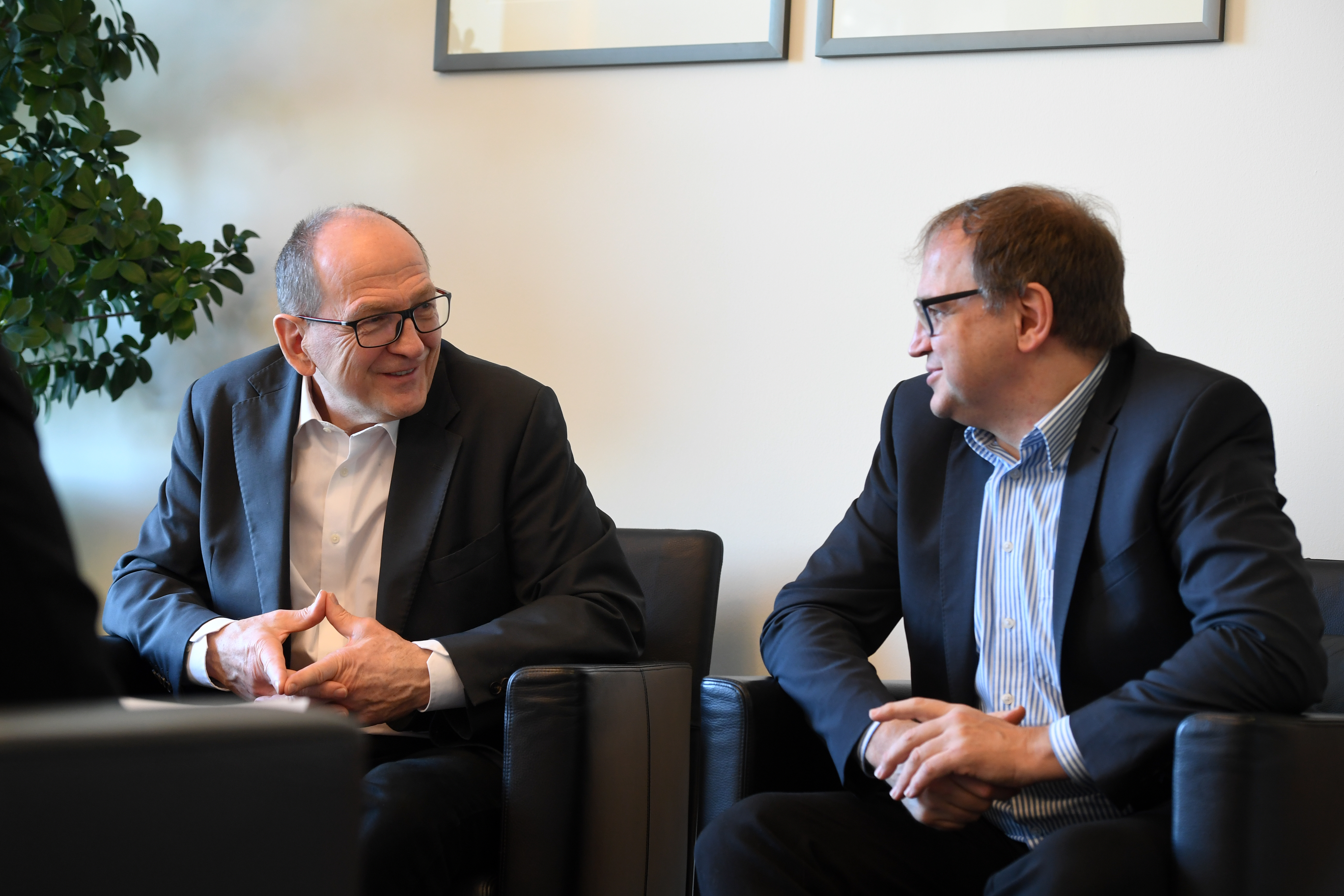To what extent does AI represent a historical turning point for Fraunhofer IIS?
Bernhard Grill: For us, the application of AI methods is the logical continuation of the development of microelectronics. Nowadays, microprocessors are integrated into even the smallest of everyday devices. With the use of AI, these devices and machines will become even more flexible and more versatile in their usability for new applications than today. They will be able to handle more complex tasks locally, without having to fall back on central high-performance computers. This means we will have the machines and the data to trigger innovations that are just as large as those that kick-started digital signal processing and microelectronics around 50 years ago. We have the capabilities to create something new with AI and we’re determined to be in on the act.
Albert Heuberger: AI means a new class of tools that are able to perform much more complex tasks. This will elevate microelectronics – a field we’ve been very successfully engaged in for years – to a whole new plane. So AI is a perfect fit for our mission to build microelectronics and sensor technology applications. As such, it’s a logical consequence of our previous activities; we must engage with these new tools and get the best use out of them in our research.
However, there are also risks associated with the use of AI. How is Fraunhofer IIS meeting its responsibilities in this regard?
Bernhard Grill: People are always afraid of machines taking too much work away from humans, but it really makes sense in many cases. The operation of devices by voice is a good example. Or when machines make driving safer. Machines do not get drunk or overtired, and they’re not prone to daydreaming. This will reduce the number of accidents, which is a huge step forward. It will be possible to prevent certain scenarios – in situations where people make typical “human” errors. The machines will make mistakes, too, but far fewer.
Albert Heuberger: We’re working on making such machines trustworthy. Take the topic of facial recognition, for example: When I look into a camera that I know uses facial recognition, then the question of privacy arises. We employ the principle of “privacy by design,” which means we use technical mechanisms such as encryption, or even no transmission at all of image data, so that users can be reassured that only certain characteristics are extracted from the data. So we ask ourselves the question: What should I allow the machine to evaluate?



